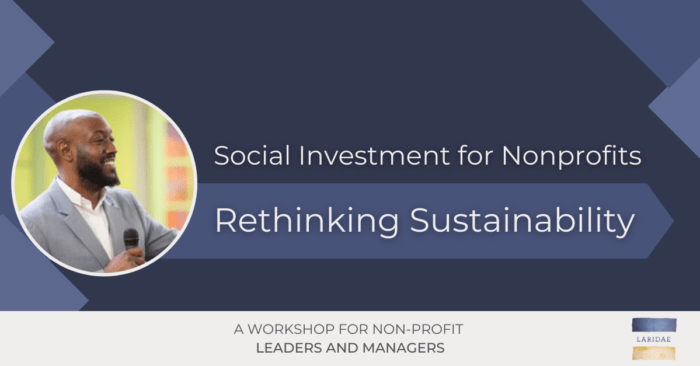
In a dynamic and deeply personal session, Victor Beausoleil, illuminated the vast, often underutilized landscape of social finance and its potential to transform nonprofits into entrepreneurial, sustainable forces for good. Drawing from years of experience in community development, impact investing, and capacity building, Victor challenged traditional nonprofit models and offered a roadmap for innovation and resilience.
What is Social Investment?
Social investment—or social finance—is the mobilization of private capital for public good. It includes tools like impact investing and social procurement that allow nonprofits and social enterprises to access new sources of funding beyond traditional grants. Crucially, it’s not a replacement for government funding, but a complementary mechanism to:
- Diversify revenue
- Build organizational sustainability
- Increase social impact
The social finance ecosystem includes:
- Demand side actors: Nonprofits, charities, co-ops, and social enterprises.
- Supply side actors: Foundations, pension funds, and retail investors.
- Intermediaries: Organizations that connect capital supply with community demand.
Opportunities for Nonprofits
Victor shared inspiring examples of how organizations like SETSI are leveraging media, AI, and social procurement to generate revenue. One standout story involved transforming a YouTube interview platform into a paid service for funders to document and showcase their grantees.
Other emerging opportunities include:
- Micro-credentials in areas like AI literacy
- Social procurement contracts with anchor institutions
- Collaborative funding tables that attract large philanthropic investments
- Bridge capital relationships with credit unions or intermediaries to support cash flow gaps
These opportunities highlight the shift from grant-dependency to market-oriented models that deliver both mission impact and financial viability.
What’s Holding Us Back?
Victor offered a searing critique of systemic barriers impeding nonprofit innovation:
- Colonial board structures focused on fiduciary duties, not entrepreneurship
- Overburdened executive directors trapped in the cycle of grant-writing and reporting
- Lack of relational infrastructure, where “it’s not who you know, but who knows you”
- Reporting overload, where up to 38% of staff time is spent on funder reporting
- Fear of shifting identity, with many nonprofits unclear about their long-term distinguishing value
Perhaps most fundamentally, Victor argued that many nonprofits haven’t yet embraced an entrepreneurial mindset required for today’s complex social challenges.
Key Actionable Takeaways
- Start with the Board: Rethink governance models to support innovation—consider co-chair models, asymmetric thinkers, and roles that prioritize entrepreneurial insight.
- Know Who You Are—and What You Are Not: Define your organization’s unique value proposition and avoid chasing funding that dilutes your mission.
- Invest in Relationships: Cultivate funder and peer relationships proactively. Relational capital is crucial—be visible and valuable in key networks.
- Leverage Every Dollar: Don’t wait until funding ends. Use grants as leverage from day one to secure additional capital and reduce dependency.
- Explore Alternative Revenue Models: Package internal knowledge (e.g., training, digital products) into sellable services. Seek out social procurement and fee-for-service options.
- Measure What Matters: Understand and differentiate between outputs (what you did) and outcomes (what changed). Build impact frameworks that align with both funder expectations and community results.
- Use Technology Strategically: Audit your organization’s tech spend. Could a sector-built solution provide savings and value? Explore AI to enhance operations or create new offerings.
- Create or Join Tables: Funders love collaborative efforts. Convene or participate in shared platforms that distribute funding and knowledge more equitably.
- Assess Your Funders: Use tools like a funder evaluation guide to ensure alignment in values and practices. Not all money is good money.
This session was a masterclass in reimagining the nonprofit sector—not as a space of scarcity, but as a thriving ecosystem of possibility, innovation, and impact. Victor’s message was clear: we already have what we need—we just need to believe it and build together.
